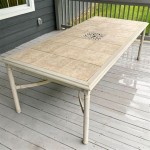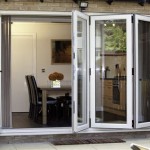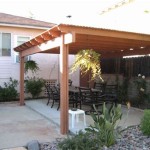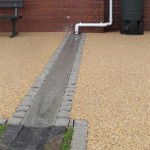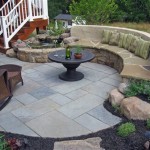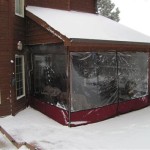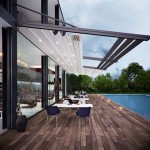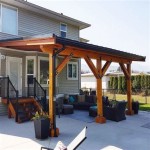Design the Perfect Outdoor Patio Seating Area: Essential NJC Code Requirements
Creating an inviting and functional outdoor patio seating area in New Jersey requires adherence to specific code requirements set forth by the New Jersey Code (NJC). Understanding these regulations ensures a safe and compliant outdoor space. This guide outlines the essential NJC code requirements that you need to know when designing your perfect patio seating area.
1. Setbacks from Property Lines
NJC requires a minimum setback from property lines when constructing any outdoor structure, including patios. The distance varies based on the municipality, but it typically ranges from 5 to 10 feet. Ensure you check with your local building department for the specific setback requirements.
2. Height Restrictions
The NJC limits the height of outdoor structures, including patio covers or pergolas. These structures cannot exceed 10 feet in height. This regulation ensures that the patio area does not block views or interfere with adjacent properties.
3. Building Permits
Building permits are generally required for any permanent outdoor structure, such as a patio cover or fire pit. The permit ensures that the structure meets safety and building codes. Contact your local building department to determine if a permit is necessary and to obtain the necessary paperwork.
4. Fire Safety
NJC outlines strict fire safety regulations for outdoor seating areas. Fire pits or grills must be placed a minimum of 10 feet away from any structure, property line, or combustible material. Additionally, fire extinguishers must be readily available nearby.
5. Electrical Safety
Electrical outlets and lighting fixtures in outdoor seating areas must meet NJC electrical safety codes. Outlets should be installed with ground fault circuit interrupters (GFCIs) to prevent electrical shocks. All wiring must be properly insulated and protected from moisture.
6. Accessibility
NJC requires outdoor seating areas to be accessible to individuals with disabilities. This includes providing ramps or stairs with handrails for accessible entrances, as well as clear pathways for movement.
7. Ventilation and Smoke Detectors
If you plan to enclose your patio seating area, you must ensure proper ventilation to prevent carbon monoxide buildup. Smoke detectors should also be installed in any enclosed areas to provide early detection in the event of a fire.
8. Lighting
Outdoor lighting is essential for safety and ambiance. The NJC recommends adequate lighting for pathways, seating areas, and any steps or stairs. Lighting should be placed strategically to avoid glare and minimize night-time disturbance to neighbors.
By adhering to these NJC code requirements, you can create a safe, compliant, and comfortable outdoor patio seating area in New Jersey. Remember to consult with your local building department for specific regulations and to obtain necessary permits before starting construction.

27 Lovely Pergola Ideas From Our Design Team Yardzen

Outdoor Fire Pit Design Ideas Landscaping Network

11 Backyard Privacy Ideas Extra Space Storage

Do Outdoor Living Spaces Add Re Value To Your Home Extra Space Storage

Do You Need A Permit For Pergola Codes Requirements And Restrictions Getasiteplan

How To Enclose A Patio Porch Or Deck

Outdoor Living Spaces Design Landscaping Nj Spoilli

Guide Deck Railing Height Code Requirements Timbertech

Outdoor Living Spaces Design Landscaping Nj Spoilli

Outdoor Living Spaces Design Landscaping Nj Spoilli
Related Posts

